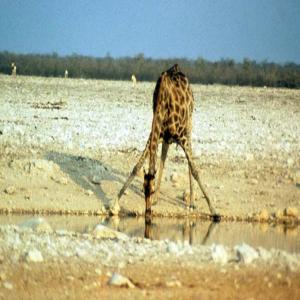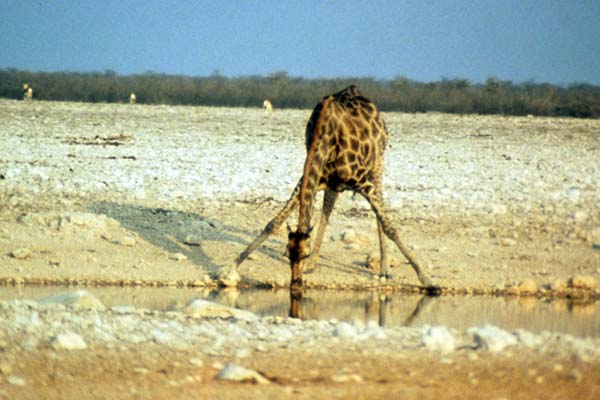Episodes

Monday Aug 15, 2011
The WildLife: Commercial Porcupine Farming in Vietnam, Emma Brooks
Monday Aug 15, 2011
Monday Aug 15, 2011
IUCN program officer Emma Brooks discusses illegal wildlife trade in Vietnam and her research on how commercial farming of a traded species, like porcupines, affects both the species and the trade. She tells “The WildLife” host Laurel Neme how most animals in Vietnam’s wildlife trade end up on the plates of wealthy restaurant patrons. In Vietnam and elsewhere, commercial wildlife farming, meaning the breeding of wild species for legal sale, is often promoted to supply demand while preventing overhunting in the wild. However, in a study on the conservation impact of commercial wildlife farming of porcupines in Vietnam published in August 2010 in Biological Conservation, IUCN program officer Emma Brooks concluded that commercial porcupine farming is instead having the opposite effect.
Emma Brooks has been involved with numerous conservation projects around the world, from biodiversity surveys in Mozambique to Giant River Otter counts in Bolivia. She first became interested in wildlife trade issues during her MSc at the University of East Anglia, UK. Her research in the trade in porcupines formed her dissertation topic, for which she spent three months collecting data and interviewing locals in northern Viet Nam. Emma now works for the IUCN, as part of the Global Species Programme based in Cambridge, UK. Her work includes assessing the extinction risk of species from around the world for inclusion on the IUCN Red List of Threatened Species, as well as using the information gathered to analyze species richness, major species and habitat threats, and important areas for biodiversity. The importance of species, ecosystems and services to human livelihoods and wellbeing is increasingly being recognized, and she works in a number of areas to provide the information to support decisions for the protection of species and livelihoods. This episode of “The WildLife” was posted on August 15, 2011.
The WildLife is a show that explores the mysteries of the animal world through interviews with scientists, authors and other wildlife investigators. It airs every Monday from 1-2 pm EST on The Radiator, WOMM-LP, 105.9 FM in Burlington, Vermont.
Sunday Nov 28, 2010
The WildLife: Orangutan Rehabilitation, Michelle Desilets, Part II
Sunday Nov 28, 2010
Sunday Nov 28, 2010
Michelle Desilets, Executive Director of the Orangutan Land Trust, discusses the rehabilitation of rescued orangutans and new approaches to help save this species in the second of a two-part interview. She tells “The WildLife” host Laurel Neme how a rescued orangutan learns to be wild with mesmerizing stories of the "school" at Nyaru Menteng Orangutan Reintroduction Project in Kalimantan, Indonesia. She also explores innvoative ways to help protect orangutans and their habitat. Michelle Desilets has been working on orangutan conservation alongside Lone Droscher Nielsen, the internationally well-known champion of these apes, for over 15 years. Together, the two women founded the Nyaru Menteng Orangutan Reintroduction Project which now has over 600 orangutans in its care, making it the largest such center in the world. Michelle also founded the Borneo Orangutan Survival Foundation UK (BOS) and served as its Executive Director and initiated a number of international campaigns to help orangutans, such as campaigns to end the illegal trade of orangutans and to repatriate known smuggled orangutans, as well as the campaign for sustainable palm oil. Currently, she is the Executive Director of the Orangutan Land Trust. She also sits on several working groups in the Roundtable for Sustainable Palm Oil and spends a good deal of time at the Nyaru Menteng project. This episode of “The WildLife” originally aired on The Radiator, WOMM-LP, 105.9 FM in Burlington, Vermont on April 12, 2010, and was repeated on November 29, 2010.

Monday Nov 01, 2010
The WildLife: Life of a Wildlife Special Agent, Sheila O'Connor
Monday Nov 01, 2010
Monday Nov 01, 2010
US Fish and Wildlife Service Special Agent Sheila O’Connor reveals what it’s like to work in wildlife law enforcement. In the first of a two-part interview, Special Agent O’Connor tells “The WildLife” host Laurel Neme about her adventures stopping wildlife crime—from tarantulas to elephants. (Part 2 next week will focus on what it takes to be a special agent and the specialized training officers go through.)
Special Agent O’Connor is a veteran wildlife law enforcement officer, with over 20 years of service under belt. She began her career in wildlife law enforcement as a Conservation Police Officer for the Illinois Department of Natural Resources, where she served for eight years. She then moved to federal wildlife law enforcement with the US Fish and Wildlife Service, where she was first posted to Ann Arbor, Michigan, and then to St. Paul, Minnesota. During that time, she investigated several cases that led to felony convictions for violations of wildlife laws. She was recently promoted to be a training officer at the Federal Law Enforcement Training Center (also known as FLETC) in Georgia. This episode of “The WildLife” aired on The Radiator, WOMM-LP, 105.9 FM in Burlington, Vermont on November 1, 2010.

Monday Jul 19, 2010
The WildLife: Gorillas & Bushmeat Trade, Pierre Fidenci
Monday Jul 19, 2010
Monday Jul 19, 2010
Pierre Fidenci, president of Endangered Species International (ESI), talks about gorillas and the bushmeat trade. He tells “The WildLife” host Laurel Neme about how ESI went undercover in Republic of Congo (Brazzaville) to monitor the bushmeat trade in key markets and found over 300 western lowland gorillas were butchered each year, with 95 percent of the illegal bushmeat originating from the Kouilou region, an area that is one of the last reservoirs of biodiversity and endangered animals in the area. Pierre Fidenci was born in Southern France, and at an early age was already involved in discovering, studying, and protecting nature. At the age of only 20, Pierre started Las Baulas National Marine Park in Costa Rica. At that young age, he also had already won multiple environmental awards including from Paul Sabatier University, the Nicolat Hulot Foundation, the French Government (Défit Jeune), and the Zellidja Foundation. More recently, he has received conservation awards from the Bp Conservation Programme, the Turtle Conservation Fund, and the Sophie Danforth Conservation Biology Fund. He has developed and directed conservation projects in South-, Central-, and North America, as well as in south East Asia, and Europe. His areas of expertise include amphibians and reptiles, applied conservation, biological surveys, and community based projects. Pierre is also a member of the IUCN Species Survival Commission (SSC). This episode of “The WildLife” aired on The Radiator, WOMM-LP, 105.9 FM in Burlington, Vermont on July 19, 2010.

